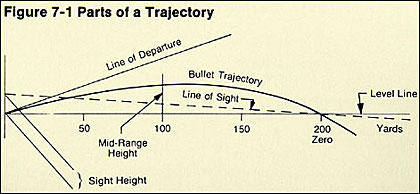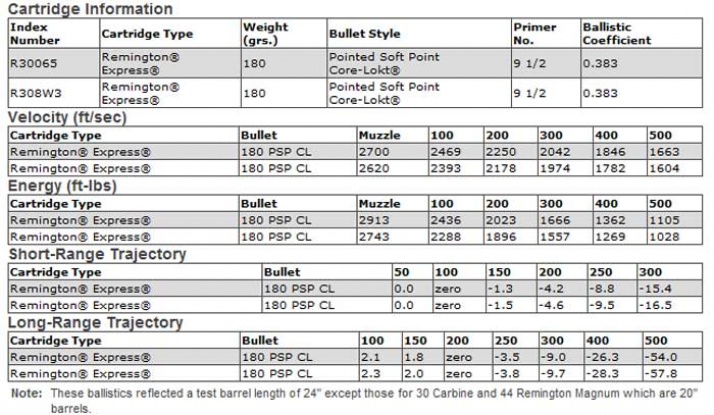Rifle Ballistics
The ballistics of rifle is similar to any other projectile. Its path is affected by gravity, air drag, atmospheric condition, wind, and elevation changes. From the time the bullet leaves the muzzle of the gun it has constant downward acceleration due to gravity. This downward acceleration, causes the rate of bullet drop to get larger over distance causing the bullet to have a parabolic path.

The horizontal velocity is affected by the air resistance, also know as drag. Each bullet also has a aerodynamic efficiency, also know as ballistic coefficient. The higher the ballistic coefficient, the less the bullet will be affected by air resistance. Based on bullet diameter and velocity bullet drop can be estimated using the ballistic coefficient, bullet drop tables are included in the back section of most reloading manuals. This will give the ability to estimate the point of impact on 50 yard increments. The rifle must be sighted to a suitable range for the targets expected to shoot.

This path will need to be "sighted in" to match the line of sights. The sights will have two points, where the point of impact is "zeroed" this is because the rifle must be give a small aim above the target to achieve a hit on the target. This makes the bullet have a "rise" before it drops to hit the target at the distance it is sighted for. The highest elevation of the bullet's path is one half the distance to the zero distance. The standard for sighting in most hunting rifles is 200 yards. So, for 200 yard zero the bullet will have maximum "rise" at 100 yards. This will give the best possible sighting for most hunting scenarios, and for most rifles the point of impact at 100 yards will only be 1 or 2" high.

A long distance shooter or hunter may be prepared to change the sighting by some sort of scope that can compensate for various distance shots. May scopes have a reticle (cross hairs) that have compensation for drop at different ranges beyond the sight in range. Also may have dials that can enter a certain amount of "clicks" to re-zero the rifle for a particular distance.
Home Page
How a rifle works Ammunition Propellants Accuracy
Bibliography